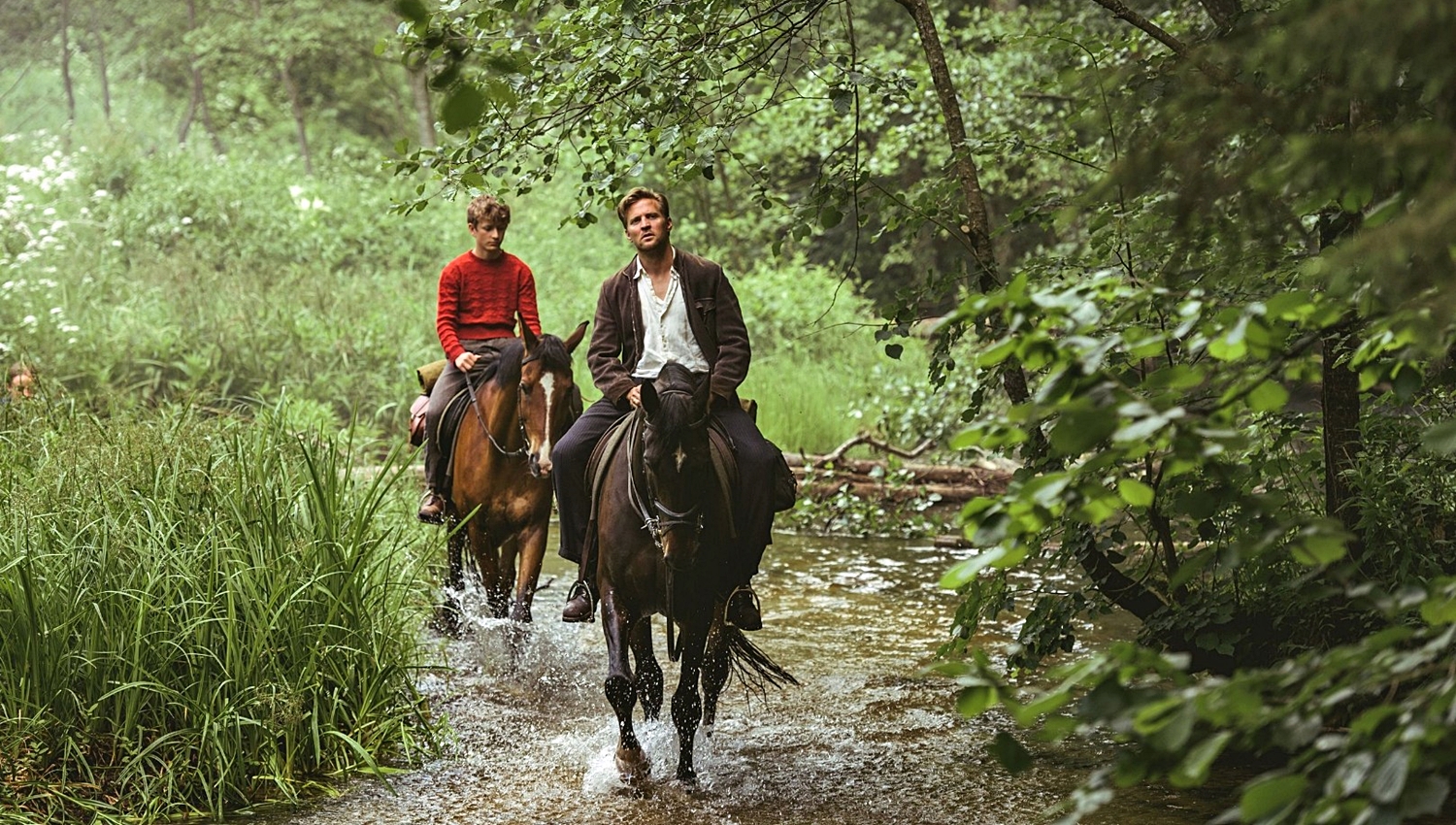
Out Stealing Horses
Dustin Chase
Director Hans Petter Moland has adapted Per Petterson’s dense novel of the same name into a film that’s cinematically ornamental. Internationally, the film is being sold as a Stellan Skarsgård vehicle, despite the fact he’s a minor character in the story. Narratively framed similar to The Reader, Out Stealing Horses exists almost entirely in flashback. The juxtaposition between the past, where the drama is, and present, where we find Skarsgård, doesn’t match. Norway’s submission to The Oscars International Film category bests many entries with its impressive cinematography work from Rasmus Videbæk (A Royal Affair, The Dark Tower). It’s easy to get caught up in the drama Out Stealing Horses offers, thanks to lead actor Jon Ranes. The teen actor gives a compelling performance that exists constantly in the realm of curiosity and wontedness.
Following the tragic death of his wife, Trond (Skarsgård) moves back to a small town in Norway where he spent his summer at age 15. Trond enjoys his solitude, but runs into a neighbor that brings memories from his past flooding back. Trond’s life changed in the summer of 1948 where he spent time with his father (Santelmann) riding horses and logging. When tragedy strikes neighbor Jon (Brean), Trond’s only friend that summer, truths are exposed about his father that forever changed the course of his future. For over fifty years Trond has had questions about his father’s decisions and a stranger from his past might hold some of the answers.
Videbæk’s camera work is reminiscent of Emmanuel Lubezki’s collaborations with Terrence Malick. Thankfully there is more drama and suspense here than in a Malick film.
Everything that’s impressive about this film adaptation occurs in the past. The stark contrast between the two Trond’s and differences between summer and winter is jolting as we go back and forth. Moland tells the story much the same way Patterson does in the novel, skipping around the chronological timeline. The 1999 present-day is virtually silent and still, while composer Kaspar Kaae’s passionate score as used in the flashbacks deepens the painful subject matter. The color tones and rich hues filtered through the trees create a visual pattern that’s appealing even with the narrative isn’t working so well. Videbæk’s camera work is reminiscent of Emmanuel Lubezki’s collaborations with Terrence Malick. Thankfully there is more drama and suspense here than in a Malick film.
Moland seems unsure how to navigate the film’s sensuality in dealing with a teenager. He leans on Videbæk’s work to focus on skin, water and visual urges without showing them outright. Separately, so many elements included in Out Stealing Horses are sublime. The film just doesn’t come together well as a whole. The message or sentiment it’s trying to convey isn’t always clear. Childhood abandonment is a popular theme for 2019 (Jojo Rabbit, Where’d You Go Bernadette, Honey Boy, etc), and like many of its counterparts, the flashbacks try to include a coming of age element that doesn’t find the space needed to flourish within the context of this novel’s narrative.
Final Thought
Out Stealing Horses is a beautiful film to admire, but doesn’t add up to a cohesive whole.
